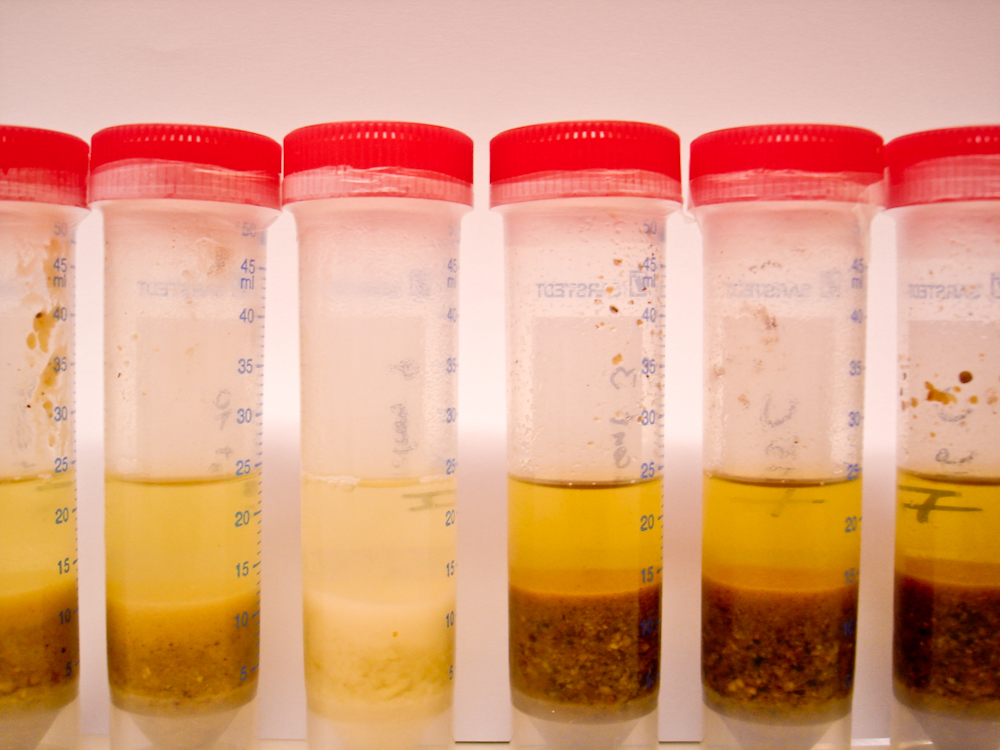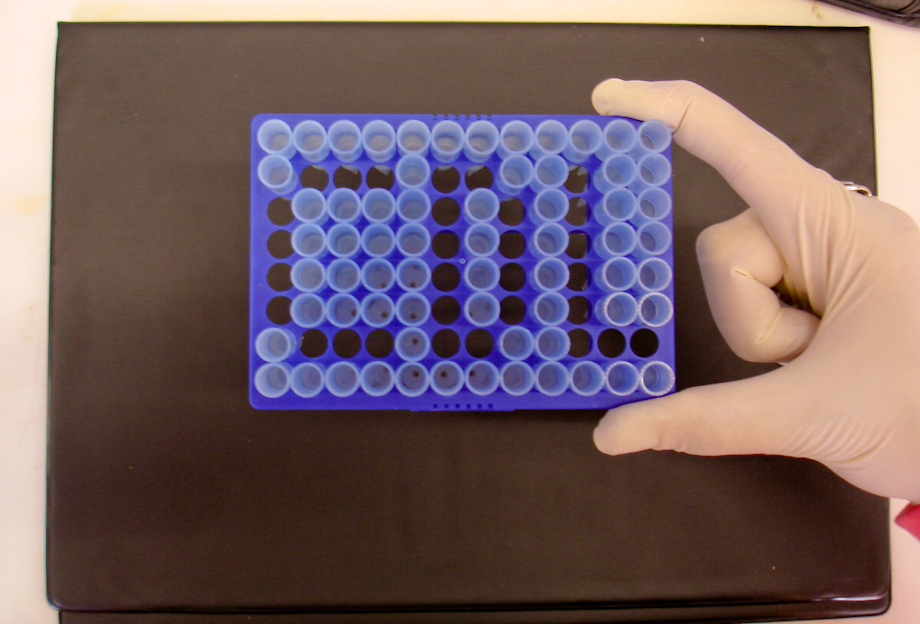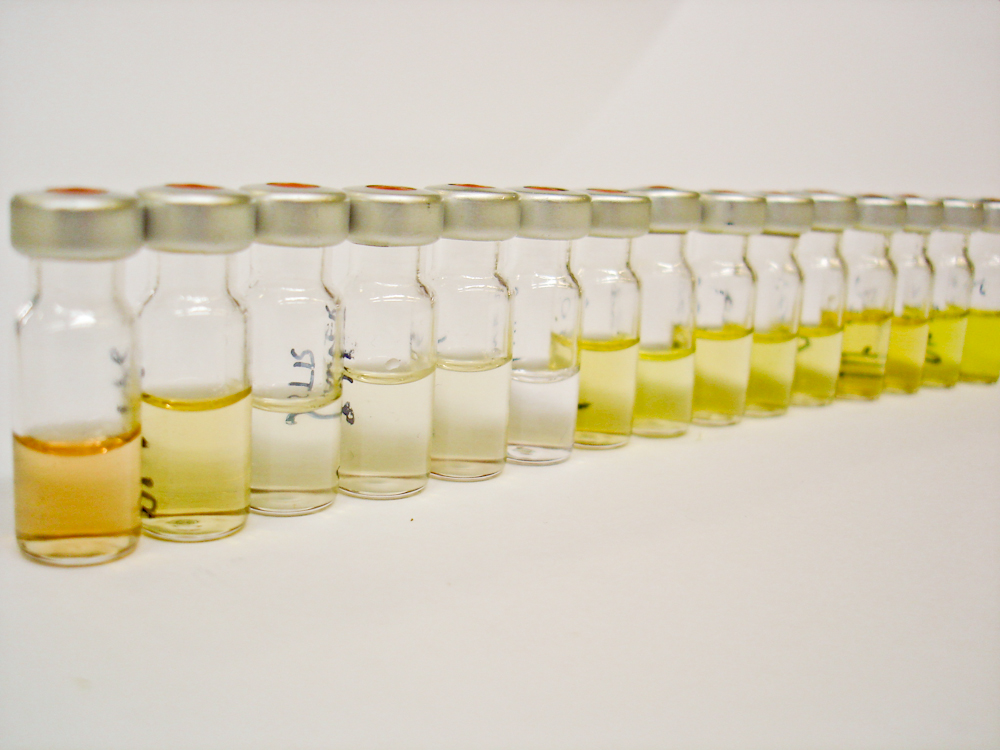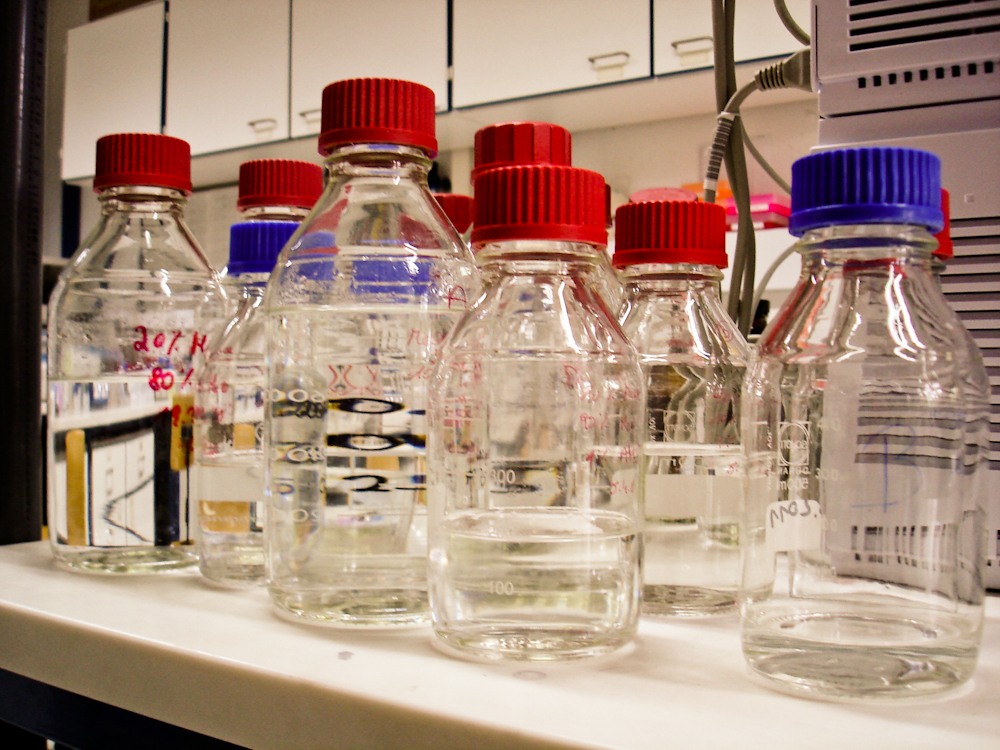CD Laboratory for Mycotoxin Metabolism


The research topic is toxic metabolites of moulds and their significance in food and feed. In addition to the formation of these substances on crops, their interactions with microorganisms and the processes following their uptake into the animal organism are investigated.
Mycotoxins are substances produced by moulds that are toxic to humans and animals. Their toxicity is problematic in the production of healthy, plant-based foods, which is why their formation, interactions and degradation are being researched. In particular, three mycotoxins from special hyphal fungi (of the genus Fusarium) are being investigated. The mycotoxins known as deoxynivalenol, zearalenone and fumonisin in particular pose a major challenge to the European cereal industry due to their prevalence.
However, mycotoxins in their original form are not the only source of contamination. Plants protect themselves by converting mycotoxins into other forms. These are either stored by the plant as soluble substances or bound in insoluble biopolymers. These "masked mycotoxins" are not easy to detect, but even these forms can still be toxic. Microorganisms in the intestinal flora in particular can convert masked mycotoxins back into their native, toxic forms.
These processes are also being researched in more detail, methodically by feeding radiolabelled mycotoxins. Once the toxin has been broken down, individual components in the body can be traced using the radiolabelling. In addition, selected substances are analysed for their effectiveness as so-called deactivators. These are substances that can lead to the detoxification of mycotoxins.
Overall, the research will contribute to a better understanding of the occurrence and degradation of economically relevant mycotoxins and their plant metabolites and to limiting their damage potential.


Christian Doppler Forschungsgesellschaft
Boltzmanngasse 20/1/3 | 1090 Wien | Tel: +43 1 5042205 | Fax: +43 1 5042205-20 | office@cdg.ac.at

